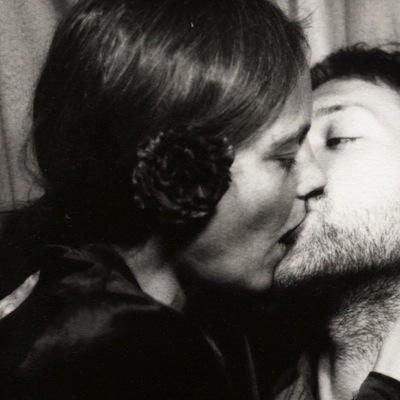Anger is generally defined as a destructive force, one that will singe before it fades, a wildfire of pain that if left unchecked only brings greater pain. It certainly doesn’t usually result in something delicate. And yet, sometimes, sometimes unexpected things happen. It’s Up To Emma is as blatant an intimate reckoning with betrayal, anger and pain as it gets and yet it’s Scout Niblett’s most sonorous, most beautiful album to date.
From the opening track ‘Gun’, the album is at once recognisable Niblett, all tension and restraint – the sparse gutteral guitar, the bare drumming, the silences between the sounds, the taughtness of her voice – and something else: new, unleashed, free. She shouts, she gives in, she lets it go in a minute of full-on raw grunge outpouring from 2:16. ‘You Can’t Fool Me Now’ takes the letting go even further.
Scout Niblett harmonies are usually suggested in the melodies, but never realised in the mix – her strange chord sequences live in their bare-boned silence, voice and guitar walking unbent alongside each other in unrelenting, uncompromising minimalism. And yet here, as she repeats the phrase "I fool myself for too long" the sound swells with a second voice doubling up then harmonising with the first, as a string arrangement falls in, more voice, a second guitar and deep drum rolls with cymbals completely sweep you away.
Aside from the sheer otherness of hearing more than her single voice and drums and/or guitar, the greatest surprise here is what Niblett is doing with the vocals. It’s as if she’s pushed through some kind of barrier to a new place, loose and lush, in both her own voice and how she melds it with others. In ‘A Woman And A Man’, she repeatedly sings "What happens right there, between a woman…", slowly emptying out her breath and her feelings ’til her voice wavers and breaks with marked emotion on the last words "…and a man".
Her apt cover of TLC’s ‘No Scrubs’ brings in male backup vocals, deliberate, paced out, heart-felt, while the penultimate ‘Could This Possibly Be?’ is an arpeggio ballad, plain and familiar, her voice weaving in and out of the guitar melody like Jeff Buckley’s ‘Hallelujah’.
The last track, with its crooning "Baby, what can I do to make it right for you?", reaches epic heights, full and wide as a river, with an instrumental two-guitar interlude that is practically ‘Hotel California’-esque and her voice coming back in, intense and high. Longing and regret and unplumbed depths of a heart broken yet still beating fill out the sound. And perhaps it is this universally recognisable experience, put in words so simple and honest, that makes the album, for all its newness, as old as the world – and just as poignantly beautiful. You feel what Niblett is talking about and you love her for it.


